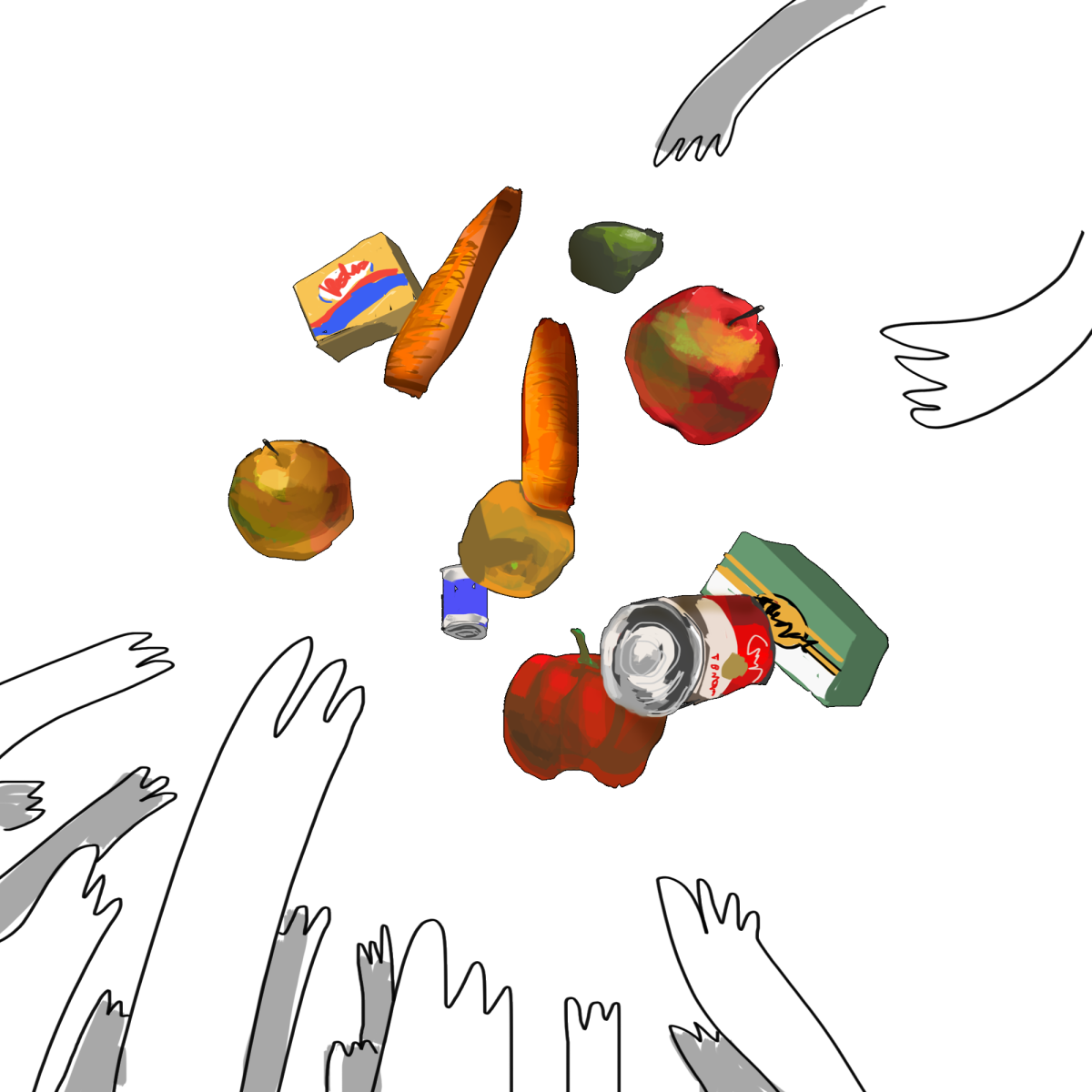This past week, various departments at Case Western Reserve University commemorated Hunger and Homelessness Awareness Week. These events shed light on the resources CWRU offers to students and how community members are pushing to better support students facing food insecurity.
The problem of food insecurity in Cleveland is staggering. According to the Greater Cleveland Food Bank, one in seven Greater Cleveland area residents face food insecurity, with children often at the forefront of this issue, as Cleveland has one of the highest child poverty rates among the largest U.S. cities.
On Monday, Nov. 13, various on-campus offices kicked off the appreciation week by tabling in Thwing Atrium, including University Health and Counseling Services which brought a fruit salad station. The Center for Civic Engagement and Learning (CCEL) also arranged to bring CWRU students to various non-profit groups around Northeast Ohio who focus on addressing food insecurity, including the Greater Cleveland Food Bank, Kids’ Book Bank and the Hunger Network Food Pantry.
Another organization that participated in Hunger and Homelessness Awareness Week was the Physical Resource Center (PRC), a student-run initiative that provides free resources to the CWRU community. Their secretary, third-year Syed Sudman Zaman, shared more about the PRC’s services: “We always stock up on food weekly or biweekly depending on the amount [that] the students use. We not only offer food resources, but clothing and even personal hygiene for [free].”
In the spirit of combating hunger among students, Zaman mentioned ways in which the PRC can continue its mission, such as by “[g]etting more funding from the university or having a bigger place.” He also suggested that the PRC “[move] to a more visible and accessible location for all students.”
Zaman said the issue of food insecurity has improved since th e creation of the Undergraduate Student Government’s meal swipe donation plan.
The Dean of Students office noted that there are other food pantries around campus, including those in the Office of Multicultural Affairs, the Office of Graduate Student Life and the Writing Resource Center.
Recognizing food insecurity is not just a problem faced by students, but by all members of our campus community, Gabrielle Parkin, director of the Writing Resource Center, started a Free Little Food Pantry at the center’s Bellflower Hall location. Parkin’s main goal was for “people to see the Writing Center as a place that recognizes that you are a whole person,” pointing out that “we cannot do our work together while hungry.”
Parkin emphasized that the food pantry is well used: “I was in my office working on Saturday and I noticed some people had put in some food, and less than an hour later the food was gone … It was just quick ready meals that were thrown in there and it was gone. Instantly.”
She also explained that the structure of the Free Little Food Pantry, with its grab-and-go system, is designed to be accessible and anonymous.
Besides on-campus pantries, last September the Greater Cleveland Food Bank had a mobile food pantry on KSL Oval. The Dean of Students office noted a decent turnout where “about 500 people attended [and] the office distributed roughly 6,000 pounds of food.”
Parkins believes that “the first step is to destigmatize [hunger] so that it’s not an invisible issue.” She recommends that students take action to combat food insecurity, emphasizing that it “costs nothing, but it makes a huge difference and creates safe spaces—and clearly identified spaces—where students know where to go to get food.”




